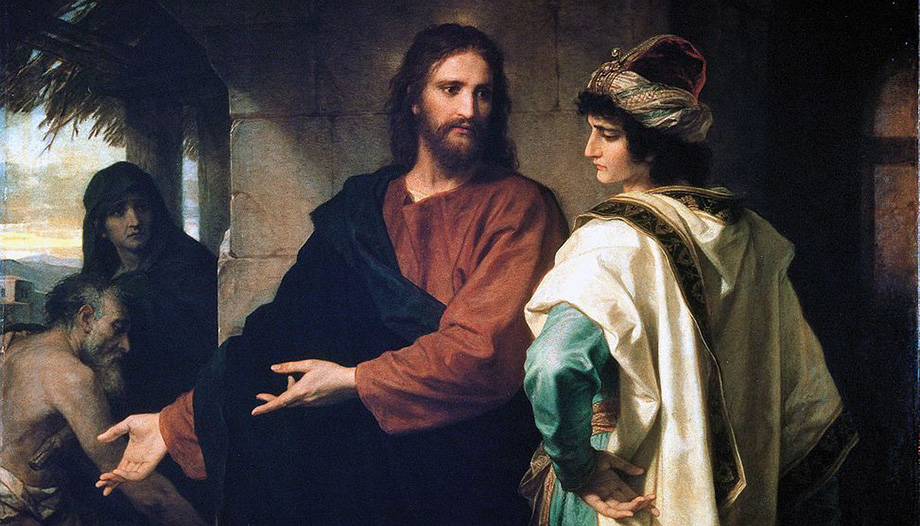Mark describes a man who runs to meet Jesus, who is on his way to Jerusalem. Matthew says he is a young man, and that is why we call him "the rich young man"; Luke says he is a notable. For Mark, on the other hand, he is only "one", and he alone says that he runs. He is the only character in the Gospel who runs towards Jesus. Zacchaeus runs, but towards the sycamore tree, out of curiosity to see Jesus. This young man represents every human being thirsting for truth, for the absolute, for salvation. He kneels before Jesus, like Abraham who ran towards the three characters who were God who visited him, and prostrated himself before them.
His question goes to the heart of what concerns him, and which his wealth, youth and nobility cannot assure him: what must I do to have eternal life? He calls you "Good teacher"He showed himself to be a disciple willing to learn.
Jesus, who is a master at listening, does not let the words we address to him drop, and helps the young man to understand that he has said a great thing. "Why do you call me good, only God is good!". Without realizing it, he called Jesus in the most appropriate way, revealing, without knowing it, his divinity. "You know the commandments." It is not a question, but an affirmation, because he knows it perfectly well. And he only mentions the commandments towards his neighbor as the way to eternal life. The young man is docile and the second time he calls him only "Master"and confides to him that he has kept the commandments all his life.
Often in John's Gospel Jesus' love for his disciples, and in particular for the beloved disciple, is declared. But this young man is the only one about whom it is said that Jesus "loved him". Jesus manifested to that young man, with his gaze fixed on his eyes, that he loved him with an infinite love. God loves each one of us in this way, even before he created us and called us to follow him. He does not wait for a positive response to the call to love us. Rather, his call is a consequence of that love.
Riches, goods, in themselves good and holy things for God, for us and for others, can be an obstacle to the following of Jesus if there is no availability for detachment, which then deserves a hundredfold.
That young man goes away sad, but Jesus does not judge him, and tells his followers that nothing is impossible for God, who is able to make a camel go through the eye of a needle. Then God can help that young man to mature. To return. To put his riches at the service of the Gospel. To tell in first person what happened to him with Jesus, how he felt loved by his gaze and how he felt sad for not being able to take the step he asked of him. Someone imagined that this young man could be Mark himself, rich and noble, who would secretly sign his Gospel.
The Homily in one minute
The priest Luis Herrera Campo offers its nanohomiliaa short one-minute reflection for these readings








